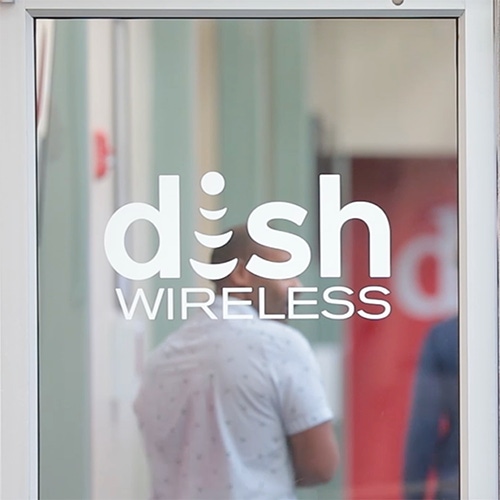
The wide launch of Boost Infinite, Dish Network's postpaid mobile service, has been pushed to the first quarter of 2023 as the company works out a set of "operational issues."
Dish has launched Boost Infinite with internal customers and had originally signaled that the service would debut this fall.
"We still have a lot of operational issues to make sure we're buttoned up on, and you only get one chance to do it right for the consumer," Dish Chairman Charlie Ergen said Wednesday on the company's Q3 2022 earnings call.
Figure 1:  (Source: Dish)
(Source: Dish)
The limited crop of internal Boost Infinite customers is getting a "pretty good experience but we've got some work to do," Ergen said. "We're poised now to launch in the first quarter."
The operational issues include a transition to Dish's own operations and business support system (OSS/BSS) for the new Boost Infinite service as well as the existing Boost Mobile prepaid service. Boost Mobile is currently running on T-Mobile's system.
Launch plans
The initial launch of Boost Infinite will focus on digital sales, followed by national retail and other branded distribution.
"You'll see us come out after the holiday rush with the competition and be in-market in the first quarter," said John Swieringa, president and COO of Dish Wireless. He billed Boost Infinite as a "full postpaid business" with retail credit qualifications, device financing and a "full assortment of iconic [on] down to mid-tier devices."
Swieringa said Boost Infinite will launch as a mobile virtual network operator (MVNO) with AT&T but added that Dish will be adding devices for both the new postpaid and existing prepaid services that support Dish's Band 70 (AWS-4) spectrum.
Getting Band 70-capable devices into the customer base is "going to be a big effort as we head into 2023," he said. "Once we're on our own MNO, we've got access to three networks, our own Dish 5G network as well as two partner networks [AT&T and T-Mobile]."
'More profitable' customers
Ergen said he is hopeful that the new postpaid offering will be much more profitable than the existing prepaid service and will thrust Dish into a market that he believes has more room for competition.
"The postpaid customer is way more profitable than the prepaid customer," Ergen said. "Competitively, postpaid business is not nearly as competitive as the prepaid business – it's not even close. There's just a bigger opportunity there. I wish we could've started six months ago."
Dish hasn't revealed pricing for Boost Infinite, but Ergen hinted that it will undercut competitors.
Details on the coming postpaid offering emerge as Dish managed to stabilize a prepaid business that's been bleeding customers. Boost realized a small gain of 1,000 retail subs in Q3, handily beating analysts' expectations that it would lose about 85,000. However, Boost's average revenue per user (ARPU) was down 4.1%, to $37.64, below an expected $38.17. Boost's revenues of $1.01 also missed by 6.7%, MoffettNathanson, a division of SVB Securities, pointed out in a research note.
$2B debt offering
Part of today's call focused on Dish's $2 billion debt offering to help fund its wireless buildout.
"Dish urgently needed to raise capital," MoffettNathanson analyst Craig Moffett noted. But he wondered what the rate would be and whether it would be enough. "But debt will be costly," he added.
Ergen said $2 billion will help Dish meet its FCC buildout obligation to reach 70% of the population by 2025, noting that Dish is building out its 600MHz spectrum at the same time. Ergen noted that about 10,000 towers have been constructed to reach the 35% coverage milestone, and that the company is building at a pace of about 1,000 towers per month.
SPAC talks
The discussion also turned to the talks underway for CONX, a SPAC (special purpose acquisition company) created by Ergen, to purchase Boost Mobile from Dish.
Ergen said preliminary discussions are underway, but he stressed that any potential sale would center on "a very small portion of the retail wireless business ... I think everybody's ahead of their skis on the SPAC discussion."
The Dish board is exploring multiple avenues, he added. While the SPAC-related talks are in the public eye, "you can assume that's not all they would look at," Ergen said. "We'd like each sector of business to be self-funding as it possibly can be."
Small pay-TV gain
Gains at Sling TV helped Dish drive positive overall pay-TV growth in Q3. Sling TV added 214,000 subs in the quarter, beating an expected gain of 50,000. That left Sling TV with 2.4 million subs, still down from the 2.6 million it had in the year-ago period, Moffett pointed out.
Dish's satellite TV business lost 184,000 subs, widened from a year-ago loss of 130,000, leaving that part of the business with 7.6 million subs.
Rolled up, Dish gained 30,000 pay-TV subs, compared to a year-ago loss of 13,000. However, pay-TV revenues dipped 4.4%, to $3.1 billion.
Related posts:
— Jeff Baumgartner, Senior Editor, Light Reading
About the Author(s)
You May Also Like











